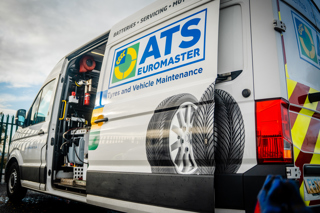The fleet sector is divided over a Government proposal to raise the first MOT test for cars from three to four years from registration.
A consultation on the proposed test extension was announced by chancellor of the exchequer George Osborne in this month’s budget.
However, the British Vehicle Rental and Leasing Association (BVRLA) has called for a time and mileage-based system, arguing that not taking account of mileages could create an issue for fleets.
“Cars are more reliable than ever, but extending the first MOT deadline could pose safety issues for cars that are doing high mileages and aren’t serviced regularly,” said Gerry Keaney, chief executive of the BVRLA.
“There could be a case for developing a time and mileage-based criteria for the first MOT.”
Extending the first MOT to four years would remove the majority of fleet cars from undergoing the test, according to data from the Fleet News Fleet200.
It reveals that the average company car replacement cycle is around 46 months – 10 months after the first MOT is currently due.
Business services has one of the lowest replacement cycles at an average of 40 months, while cars operated by the public sector (not including the NHS or bluelight services) replaced their cars every 54 months. The average mileage of Fleet200 cars was 85,700 miles.
“Effectively, this would mean that the majority of cars owned by fleets would never need to be MOT’d, because they are on shorter cycles than four years, which is a definite gain in terms of both costs and reduced hassle surrounding defleeting,” said Kyle Truman, marketing director at Epyx.
Gary Killeen, fleet services commercial leader for GE Capital UK, welcomed the announcement.
“Modern cars are exceptionally well made compared to those produced even 10 years ago, and can take very high mileages and hard use with few or no problems,” he said.
“A longer first MOT would save money for fleets that operate their vehicles into a fourth year and could be adopted without any operational issues.”
However, the Retail Motor Industry Federation (RMI), which represents franchised dealers and independent garages, says the Government’s plan can only serve to damage the UK’s road safety record.
It claims that even an average mileage car is significantly more likely to be driving on unsafe and worn tyres and brakes after four years compared to three.
It suggests any extension is likely to see more failures of safety related components, such as shock absorbers, long before they are identified at MOT – especially in high-mileage cars.
RMI director Stuart James said: “The Government seems to take the view that the MOT is a burden on motorists – we think that motorists deserve more credit than that.
“Road safety is a priority for them and they understand that roadworthiness testing of a vehicle is an important part of making our roads among the safest in Europe.”
Ashley Sowerby, managing director at Chevin Fleet Solutions, is advising fleets to closely examine the way in which the proposed increase in the first MOT from three years to four would affect their risk management.
“For those that operate on replacement cycles of more than three years, it could create a weak spot,” he said.
“For example, you might have a high mileage vehicle that has covered perhaps 75,000 miles after three years which, while it has undergone regular maintenance, will not be required to pass its MOT for another year.
“From a duty of care point of view, that vehicle would represent an increased risk and fleets would perhaps need to ensure that they had procedures and arrangements in place that recognise that fact.”
Vans are not included in the consultation, a move which has been welcomed by Keaney.
He concluded: “Vans are the fastest growing sector of the road transport sector and concerns over their first-MOT pass rate mean that the Government did the right thing in excluding them from this proposal.”
























Roger Hill - 28/07/2015 14:21
If we want to encourage grey fleet drivers to get into lower emmision cars then recently defleeted vehicles are the way to go. A vehicle with an MOT at 3 years is indicative to a prospective purchaser that it still performs largely as designed. There are definitely safety concerns here too, particularly with the condition of brakes and tyres which could be marginal. No self respecting fleet manager should support this move as otherwise it could imply that they would be happy to defleet an unsafe vehicle. If there is no need for the reseller to inspect the car then any future incident could bounce back onto the previous owner/user to prove there was no negligence on their part. The MOT is their legal safeguard.